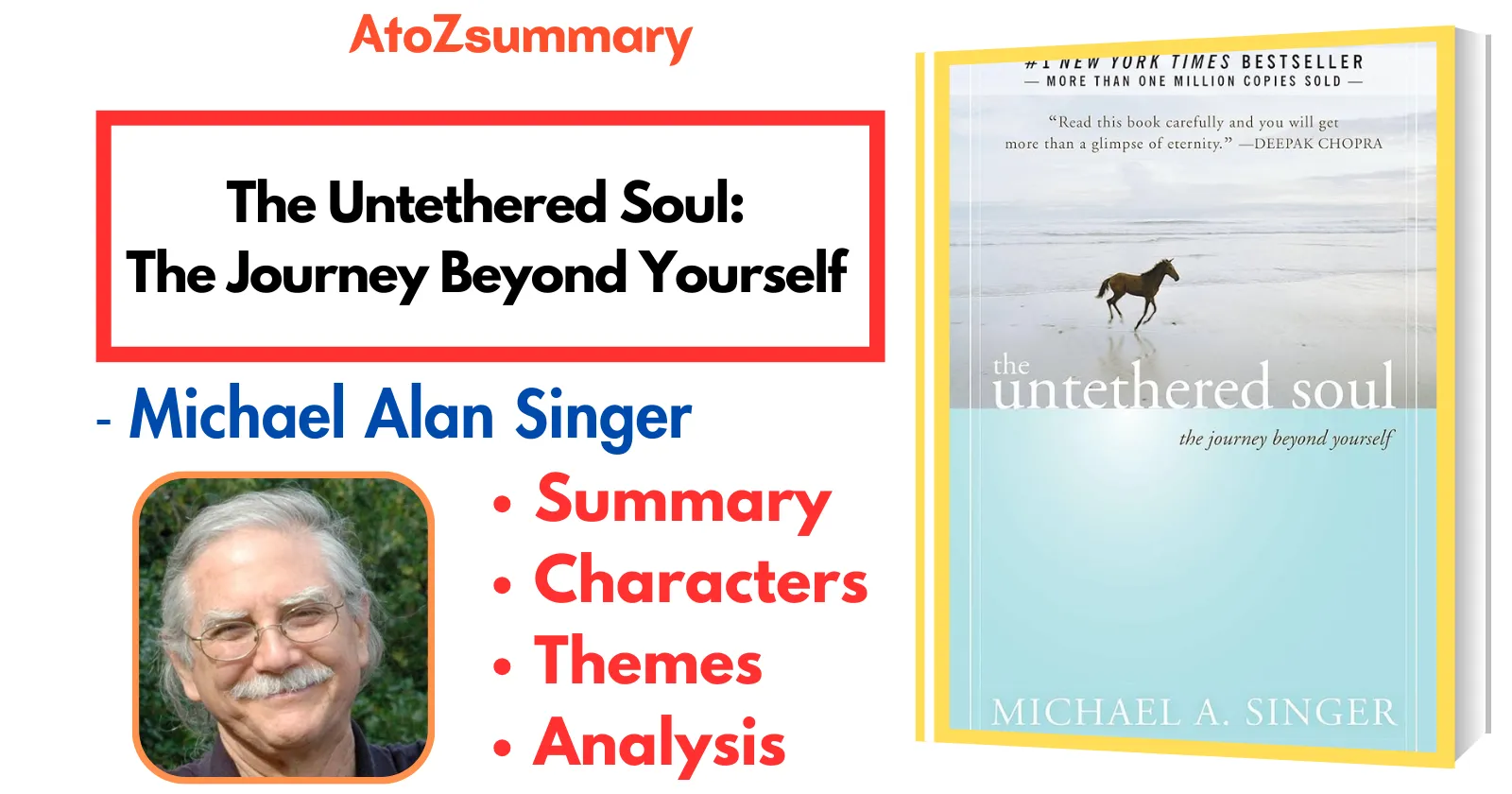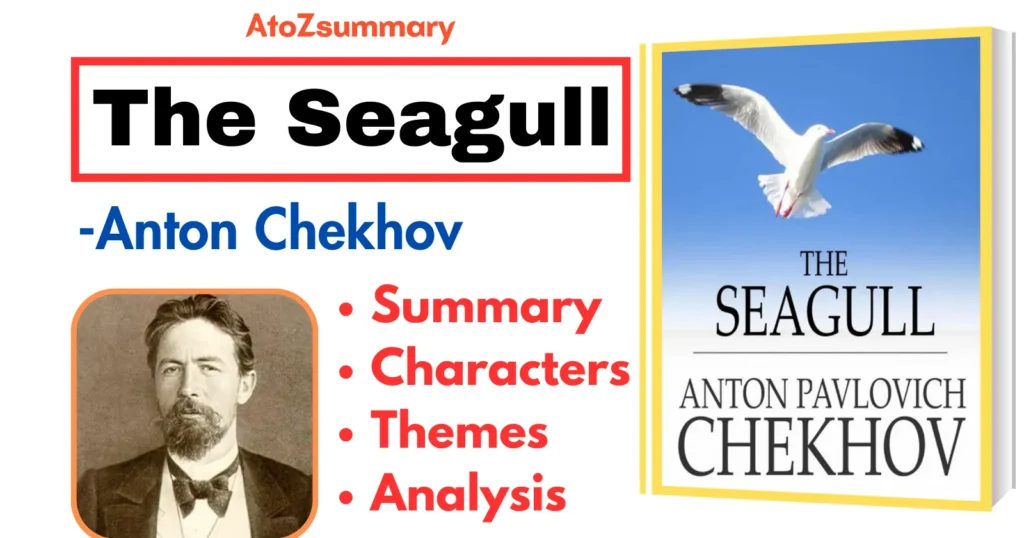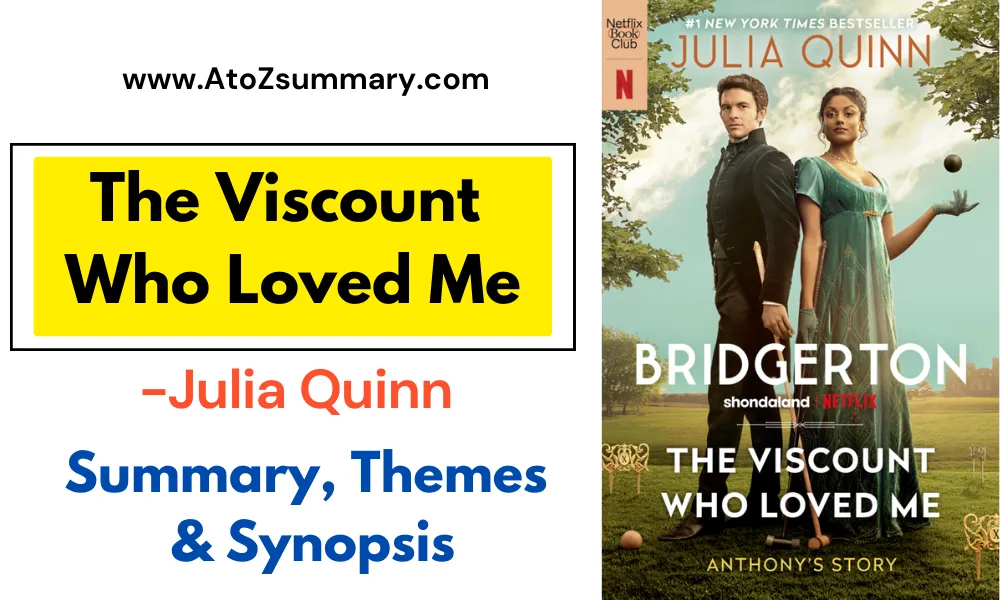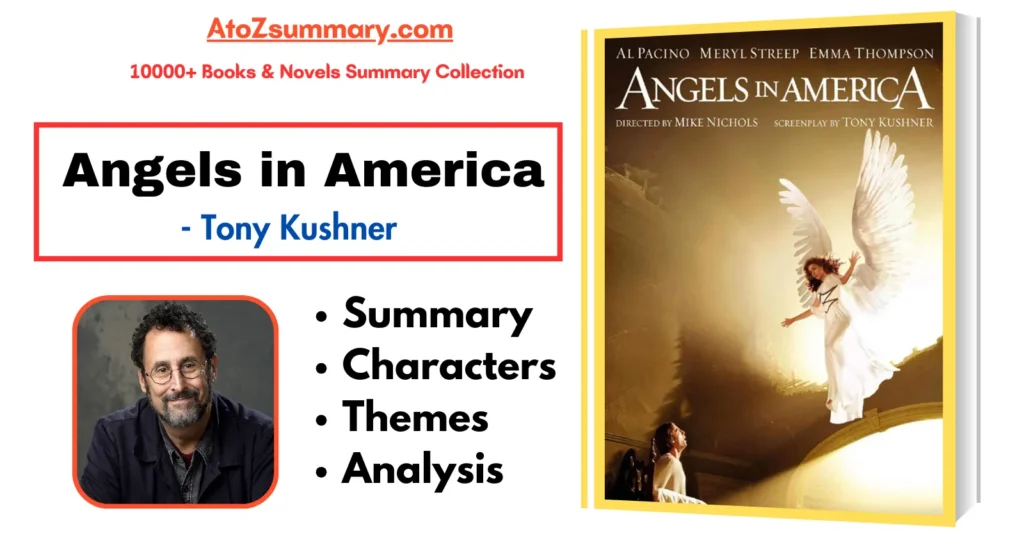About the Book: The Untethered Soul
| Title | The Untethered Soul: The Journey Beyond Yourself |
| Author | Michael Alan Singer |
| Genre | Spiritual, Self-Help |
| Publication Date | October 3, 2007 |
| Publisher | New Harbinger Publications |
| Pages | 200 pages |
Analysis: The Untethered Soul
“The Untethered Soul: The Journey Beyond Yourself” by Michael A. Singer is a book that explores the idea of inner freedom and the path to self-realization. The author encourages readers to observe their thoughts and emotions without getting attached to them. He explains that true happiness comes from letting go of limiting beliefs and fears.
Singer introduces the concept of the “inner roommate,” which represents the constant chatter in our minds. He suggests that by quieting this inner voice, we can experience a deeper sense of peace. The book also delves into the nature of consciousness and the importance of mindfulness in breaking free from the patterns that hold us back.
Characters: The Untethered Soul
The characters of “The Untethered Soul” by Michael Alan Singer are:
- The Narrator/Self: The book encourages readers to explore the nature of their own consciousness and the self.
- The Inner Witness: Described as the part of you that observes your thoughts and experiences without being entangled in them. It represents your true self.
- The Inner Roommate: This term is used to describe the constant inner chatter and commentary in your mind, the voice that never seems to stop.
- The Energy Centers (Chakras): Singer discusses the energy centers within the body, which are drawn from Eastern spiritual traditions.
- Life Events and Circumstances: Various life situations and events are also treated as characters in the sense that they serve as opportunities for personal growth and self-awareness.
Themes: The Untethered Soul
The themes of “The Untethered Soul” by Michael Alan Singer are:
- Consciousness and Awareness: The book emphasizes the importance of being aware of your thoughts and emotions, and how this awareness can lead to a more fulfilling life.
- Letting Go: Singer discusses the idea of letting go of inner resistance and surrendering to the flow of life. By releasing attachments and fears, one can experience true freedom.
- The Inner Observer: The concept of the “inner witness” or observer is explored, encouraging readers to detach from their thoughts and emotions, and instead, observe them without judgment.
- Unconditional Happiness: The book suggests that true happiness comes from within and is not dependent on external circumstances. By understanding this, one can cultivate a sense of lasting and unconditional happiness.
- Spiritual Awakening: Singer guides readers on a journey towards spiritual awakening, encouraging them to go beyond the limitations of the self and connect with a higher consciousness.
- Energy and Vibrations: The book delves into the idea that everything is made up of energy and vibrations. Understanding and working with this energy can lead to a more harmonious and peaceful life.
- Living in the Present Moment: Emphasis is placed on the importance of living in the present moment, letting go of past regrets and future anxieties, and fully experiencing the richness of life now.
- Inner Dialogue: The book explores the constant inner dialogue we have with ourselves and how becoming aware of and managing this dialogue can lead to a more balanced and centered life.
- Freedom from the Mind: Singer discusses the liberation that comes from breaking free from the confines of the mind and the habitual thought patterns that can limit personal growth.
- The Seat of Self: The concept of finding the “seat of self,” a place of inner stability and peace, is a recurring theme, encouraging readers to anchor themselves in a deeper and more authentic aspect of their being.
Watch Full Video Summary of “The Untethered Soul”
The Untethered Soul Summary
Part 1 begins with Singer reflecting on the perplexing and never-ending noise within our thoughts. To feel in control and at ease with reality, we tend to filter raw experience through a fog of thought by default. However, we should make an effort to avoid identifying with this inner voice. Realizing that we are not our problems; rather, we are witnesses to these events, is the answer to the majority of our issues. Singer likens this internal monologue to an annoying roommate who never stops talking.
By posing the query, “Who are you?” to ourselves When eliminating any flimsy responses to this query (such as one’s identity, interpersonal relationships, and experiences), we discover that the fundamental “you” that endures is only a sentient being with awareness, perception, and consciousness. This inner witness is comparable to the Christian soul or the Buddhist self. Most individuals spend their lives immersed in object-awareness or connecting with the world and its issues, rather than observing the world from the seat of consciousness. The true essence of meditation lies not only in the knowledge that one is observing the world around them but also in the capacity to bring consciousness itself into focus. Gaining mastery of this leads to a genuine comprehension of the essence of the Self.
We talk about the boundless inner energy we all possess in the first section of Part 2. When faced with difficult circumstances, we frequently decide to isolate ourselves to prevent access to this limitless energy. It is possible to break the tendency to stay closed; instead, we may choose to always be open and feel the most love and joy. Singer concentrates on the heart, a remarkable and misunderstood energy area that is frequently stopped yet nonetheless permits energy to flow through. Heart blockages hold energy patterns that, when released by life’s stimuli, instantly impact our emotions.
Being prepared to feel pain—including the discomfort of facing fear—when the outside world upends and harms us is a necessary price for freedom. People who cling to inner obstacles lead lives driven by dread. When this occurs, living freely is replaced with organizing one’s life to keep oneself from encountering difficulties. Refusing to let go of issues and allowing them to materialize in the world sets up a vicious cycle that can lead to a lifetime of suffering and comebacks. Singer illustrates how inner obstructions ultimately come to rule our lives with the example of a thorn. You have two options if you have a painful thorn protruding from your body: either arrange your life so that nothing can ever come into contact with the painful thorn, or get rid of it permanently.
It is possible to choose to stop experiencing pain. The mind works nonstop to find solutions to all of our issues, and it is our responsibility to realize that happiness does not depend on finding solutions to life’s issues. We have to give up expecting our intellect to solve our issues. From a focused awareness perspective, freedom is the ability to observe the mind’s continual cycle of problems and solutions without being identified with them. Moreover, we might develop layers of sensitivities around the center of our sorrow, making daily events painful, if we choose to wall ourselves off from our suffering rather than letting it go.
Singer draws a comparison between the ideas and feelings that race through our heads with a house we’ve erected in the middle of a large field. We become accustomed to that dwelling and live there for all of our lives, forgetting that the outside world is a lovely, bright place. Instead, inside our homemade home, we attempt to produce artificial light of our own. It takes a willingness to step outside of one’s comfort zone to get past one’s mental barriers. Singer presents a choice: strive for freedom or live your entire life attempting to be comfortable. Being spiritual is making the effort to push past our mental limitations and go forth until we have developed our brains to the point where we can live in the infinite now.
Clinging or hanging onto feelings, ideas, and energy flows that would otherwise pass through us is how our psyches are built. When we learn to tolerate psychological suffering and learn to see the dread and loneliness that occur from a focused awareness perspective, we will finally be free. Selecting unconditional happiness is deciding to be positive even in the face of adversity. With our willpower, a force generated by focusing ourselves on a certain goal, we oppose the occurrences of life. According to Singer, resisting is a waste of energy; to be free, one must accept everything that occurs and respond to it without opposition.
Singer tells her readers to be thankful for death, saying that it teaches us how to live and gives life purpose. Living with a profound respect for mortality is making the most of each moment and giving meaningful experiences top priority over the desire for longer time spent on Earth. The Tao, or “The Way,” as it is described in the Tao Te Ching, is the subject of Chapter 18. Tao is the harmony of all the many balancing points in our lives; it is about utilizing our energy to keep a balanced road ahead rather than squandering it by living at the extremes of life.
In the last chapter, it is explained that all humans are connected to the Divine and that all judgments vanish when we see the world through God’s loving eyes. God cannot be known by literature; one can only know him via personal experience. When we join with God, we discover his transcendent love, which shines on everyone, whether they want to recognize it or not.











